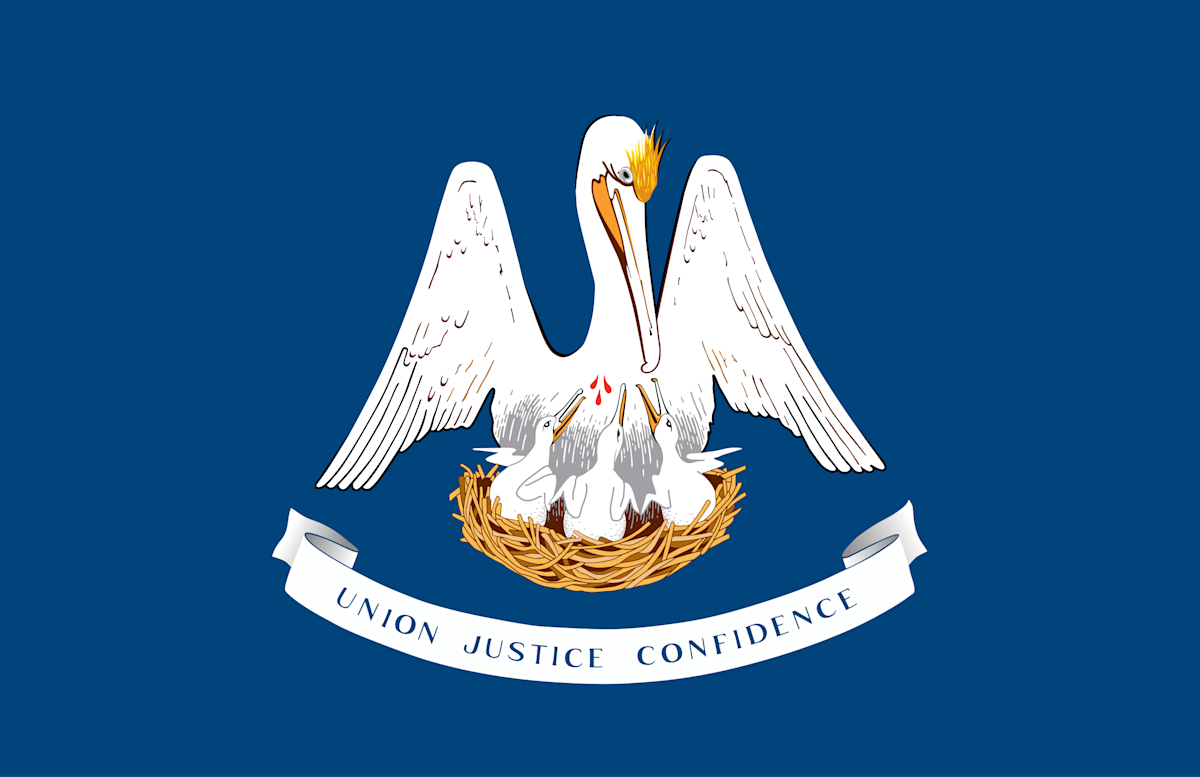The Port of Louisiana, which spans 54 miles of the Mississippi River, is one of the largest port districts per tonnage in the western hemisphere. This economic region and the network of commerce and trade entities that have formed through it rely on a robust trucking industry. However, the prevalence of commercial trucks and other cargo vehicles on Louisiana roadways naturally poses a greater danger for motorists and pedestrians.
Trucks are 20 to 30 times heavier than small passenger vehicles such as cars and require 40% more time to stop when they apply their brakes. They often carry hazardous materials, such as flammable liquids and toxic chemicals, which pose significant risks, especially considering that parts of Louisiana are dedicated to petroleum refining and petrochemical storage and transfer.
The Center for Analytics & Research in Transportation Safety of the Louisiana State University gathered crash statistics for motor vehicles in 2022, which point to a high incidence of trucking-related crashes and the rate of fatalities from these accidents, as detailed here:
This article provides commercial trucking laws and related information aimed at helping trucking accident victims who wish to know their rights and legal protections.
Louisiana Truck Driver Qualifications
Trucking companies are required to register with the Federal Motor Carrier Safety Administration (FMCSA) and abide by the organization’s regulations. These rules include the various guidelines Louisiana truck drivers must meet to operate their vehicles legally.
Truck drivers must have a valid CDL or commercial driver’s license issued by the state. They also need a qualification file that details their employment history and driving record of the past three years, a valid certification of driver violations and road tests, and an updated medical examiner’s certificate.
Drivers of semi-trucks must be at least 18 and 21 years old for intrastate and interstate driving, respectively. They should also be at least 21 years old to transport hazardous materials intrastate.
Semi-truck drivers should speak and understand English, be capable of making reports and records in English, and understand traffic signs. They should also not have physical or mental disabilities that may affect their ability to operate and control commercial motor vehicles.
All the requirements drivers need to fulfill are implemented to help ensure that they keep state roads safe for themselves and other motorists. Failing to follow these commercial trucking requirements may lead to accidents, and victims may use the truck drivers’ lack of compliance to claim compensation for their injuries and other losses. Violations may also result in disqualification and/or suspension of licenses for the offending trucker.
Hours of Service for Truck Drivers
Louisiana truck drivers must comply with federal regulations on hours of service, which restrict the amount of time they can drive commercial trucks. The following guidelines, as set by the FMCSA, should be observed:
Truck drivers should have 10 hours of consecutive off-duty rest prior to starting their shift.
After the 10-hour off-duty rest, truck drivers may stay on duty for only 14 consecutive hours.
Truck drivers are limited to 11 hours of driving at a given time.
Truck drivers should take a break of 30 minutes for every eight hours of continuous driving.
Truck drivers should only have 60 hours of duty in seven days, or a maximum total of 70 hours of duty over eight days, which can be reset after a continuous off-duty status of 34 hours.
The rationale for setting these limitations on hours of service is to prevent truck drivers from operating their vehicles when tired or sleepy. Driver fatigue causes many interstate truck crashes. Both the driver and the trucking company are responsible if violations of these restrictions are committed. The Louisiana Department of Transportation and Development (LaDOTD) provides other specific guidelines on truck operation hours.
Louisiana Commercial Truck Weights
The LaDOTD sets specific weight restrictions for commercial trucks traveling on the state’s roadways. Throughout the country, weigh stations are available to help ensure that trucks do not exceed their recommended weight.
The maximum weight limit for trucks varies depending on the type of vehicle and the number of axles it has.
Single axles can have a maximum weight of 20,000 lbs, while tandem axles may carry a maximum weight of 34,000 lbs. Commercial truck cargo should have a maximum weight of 80,000 lbs in a fully loaded single trailer. Trucking companies and vehicle operators should keep in mind that despite these limits, such weights may still be too much for certain bridges and roadways. Trucks with loads that are too heavy risk damaging roadways and the trucks themselves. In addition, unusually heavy loads make trucks susceptible to tipping over or creating an imbalance in weight.
The LaDOTD also sets restrictions on the length, width, and height of commercial trucks to help prevent the endangerment of other motorists and public infrastructure such as tunnels and bridges.
Truck Owner and Lessee Identification Regulations
Interstate Commerce Commission-registered motor carriers that ply the interstate highways passing through Louisiana should display the lessee’s or owner’s identification. The identification may be a trade or individual name and may be positioned on the outer surface of vehicle doors. This requirement applies to trucks that are registered as weighing 4,000 lbs and above and are licensed for commercial use.
Owners of heavy equipment that have weights that exceed three tons and transport themselves or are transported on the state’s highways should inscribe, stencil, affix, or paint their name or emblem on a conspicuous area. These signs may be made of magnetic plastic, decals, or any other similarly secure material. They should have letters with a minimum height of 2.5 inches and a width of ¼ inch.
Such identification is useful in determining the entities responsible in cases where these trucks figure in accidents that warrant legal proceedings.
Special Rules for Mini-Truck Operations
Louisiana Revised Statute 299.2 defines a “mini-truck” as a reduced-dimension, four-wheeled truck with or without a classification from the National Highway Traffic Safety Administration. It has a 65 mph top speed, a compartment or truck bed for hauling, and an enclosed passenger cab.
Mini-trucks are permitted to operate on state highways that have a 55 mph speed limit or less. Exceptions to this include interstate and controlled-access highways and multi-lane divided highways that have partial or no control over access.
They should have head, stop, tail, rear, and front turn signal lamps. They should also have a mirror mounted on the driver's exterior and interior mirror or mirror on the passenger's outer side. These vehicles should also have parking brakes, windshield wipers, individual wheel braking, seat belt assemblies for each seating position, a vehicle identification number, and a speedometer and odometer.
Mini-trucks that operate on state highways are registered as off-road vehicles that should display a decal issued by the Louisiana Office of Motor Vehicles.
Louisiana Commercial Trucking Insurance Requirements
Commercial truck insurance policies may cover ¾ ton, flatbed, dump, tractor, garbage, and vacuum trucks, as well as log haulers and motor vehicles haulers. Trucking insurance has many types, and the most expensive coverage is the primary trucking liability that protects trucks and trailers when they cause property damage or bodily injury to other parties.
Trucks in the US are required by federal law to have this minimum liability coverage. The following are the specific amounts that are required for Louisiana trucking entities:
Minimum liability insurance of $300,000 for trucks that have weights not reaching 10,000 lbs and not transporting hazardous freight; and
Minimum insurance coverage of $750,000 for trucks that weigh more than 10,000 lbs (the category in which most trucks belong).
The insurance coverage may reach up to $5 million for trucks that carry hazardous materials. According to Louisiana law, commercial trucks that carry cargo that is classified as hazardous and have a gross vehicular weight of at least 24,000 lbs must have coverage of at least $200,000 for property damage and $300,000 for public liability.
Some policy types outside the required primary liability coverage include medical payments for injury victims’ medical expenses if the truck driver is at fault. The typical range for such medical payments is $1,000 to $5,000.
Cargo insurance is generally not legally required, but it becomes mandatory when the truck transports another party’s goods. The standard limit in the industry is $100,000, which can go above $1,000,000. This insurance tends to be complex, as it usually has many sub-limits and exclusions and considers what commodities will be transported.
Other coverage types include physical damage, which covers the damage to the truck in incidents such as crashes; damage from vandalism and theft; and accident-related towing expenses. Commercial trucks may also get uninsured/underinsured motorist insurance.
Louisiana Is an At-Fault State for Insurance Claims
Louisiana is a tort or at-fault state for vehicle insurance. This means that parties who are responsible for vehicular crashes will shoulder the payment for property damage and victims’ injuries that resulted from the collision.
This system is different from no-fault states in that Louisiana drivers can file a lawsuit to pursue compensation for basic medical treatment. In addition, no-fault states usually require drivers to have personal injury protection insurance (PIP) so that they can pay for their hospitalization regardless of who is at fault. Louisiana commercial trucking laws do not require truck drivers to have a PIP.
Louisiana Is a Pure Comparative Fault State for Trucking Accident Lawsuits
Louisiana follows a pure comparative fault system in determining the awarding of damages and assignment of fault in vehicular collisions, according to Civil Code Article #2323. Entities involved in a motor vehicle accident can recover damages in amounts proportional to the percentage that they are at fault or to blame for the crash.
For example, a jury in Louisiana may determine that a victim’s overall losses, including their injuries and pain and suffering, have an equivalent monetary amount of $300,000. The jury, however, also ruled that the victim was 25% responsible for causing the accident. In this situation, the total damages they can claim is $300,000 minus 25% of this amount or 75% of the award. In this case, the amount is equivalent to $225,000. The reduction of $75,000 from the amount awarded to the claimant represents the percentage of their fault in the truck accident.
Louisiana Statute of Limitations for Truck Accidents
Louisiana’s prescriptive period or statute of limitations for filing truck accident lawsuits is one year starting from the day that the property damage or bodily injury was sustained. This means that if no lawsuits are filed within this time frame, the claims of the injured victim become invalid.
It should be clarified that filing insurance claims with the insurance company of the trucking business after an accident is totally different from filing lawsuits. The insurance claim is made to notify the insurance provider of the at-fault party and to inform them that the victim is pursuing compensation.
That is why it is prudent to provide a considerable allowance of time in which the plaintiff can initiate the lawsuit, regardless of whether they are confident that the issue will be resolved via the insurance claim.
How Much Can Someone Sue for a Truck Accident in Louisiana?
The state of Louisiana has no limit on the amount of damages that truck accident victims can recover through lawsuits. It does not set a cap on damages in personal injury suits involving vehicular accidents, defective products, and falls; plaintiffs can claim all documented and compensable damages.
However, for motor vehicle accidents that involve the negligence of government organizations and/or government employees, Louisiana Revised Statute 5106 sets a limit of $500,000 for recoverable damages.
Average Settlement for Louisiana Trucking Accident Lawsuits
Settlements for Louisiana trucking accident cases vary widely, ranging from tens of thousands up to a few million dollars. Since trucking accidents are very common and usually catastrophic, truck companies are required by trucking accident laws to have higher insurance coverage than policies for small private vehicles such as cars. And because multiple parties are also involved in such accidents, truck collision cases are often worth much more than cases of car or motorcycle accidents.
Each case is unique and will depend on the damages that need compensation. Factors that affect the final settlement amount include contributory negligence, liability laws, the severity of victims’ injuries, fatalities, DUI cases, and insurance policy limits.
Legal Resources for Louisiana Trucking Accident Victims
Louisiana State Bar Association Consumer Brochures
Through Consumer Brochures, the Public Information Committee of the Louisiana State Bar Association (LSBA) has prepared accessible overviews regarding various legal issues. Guidance regarding the auto insurance requirements required by the state and the types of coverage you can get can be found in the auto insurance consumer brochure. If you wish to pursue a lawsuit but do not want to hire an attorney, you may consult the brochure on your rights and responsibilities when representing yourself in court.
LSBA Lawyer Referral and Information Service
The Louisiana State Bar Association maintains a referral and information service that provides accident victims access to legal guidance and resources. It is part of the LSBA’s Find Legal Help page. Here, you can also find pro bono attorneys and legal aid organizations that work with clients who meet financial eligibility requirements.
Louisiana Regulations for Trucks, Vehicles and Loads
This is a guide provided by the Louisiana Department of Transportation and Development to aid trucks and other vehicles in abiding by the rules and regulations set forth in the Louisiana Revised Statute 32 and 32:2 and Title 73 of the state’s Administrative Code.
It provides the guidelines governing various types of trucks and their operation. It discusses various rules that involve licenses, permits, hours of operation, standards for truck and cargo dimensions, truck equipment, and types of loads. Among other regulations, the guide also contains rules on intra- and inter-state movement and movement during special circumstances such as inclement weather, nighttime, holidays, and curfews. Such information is helpful for plaintiffs or trucking accident victims when establishing the fault of truck drivers and companies in the event of a crash.
Louisiana State Police
The Louisiana State Police’s Commercial Vehicle Enforcement Division (CVED) has various units that promote public safety by helping operators comply with state and federal regulations through uniform enforcement and education. Its units include the Motor Vehicle Inspection Unit, the Motor Carrier Safety Unit, Weight Enforcement Information, and the Towing and Recovery Unit.
Louisiana Judiciary
The judiciary of Louisiana consists of a court system that applies and interprets criminal and civil laws. It tries cases and comprises three parish courts, 48 city courts, five juvenile or family courts, 43 district courts, five courts of appeal, and the Louisiana Supreme Court. Victims who need guidance on filing lawsuits can visit https://www.louisiana.gov/government/judicial-branch/#contact.
Step into the world of Expertise.com, your go-to hub for credible insights. We don't take accuracy lightly around here. Our squad of expert reviewers, each a maestro in their field, has given the green light to every single article you'll find. From rigorous fact-checking to meticulous evaluations of service providers, we've got it all covered. So feel free to dive in and explore. The information you'll uncover has been stamped with the seal of approval by our top-notch experts.





